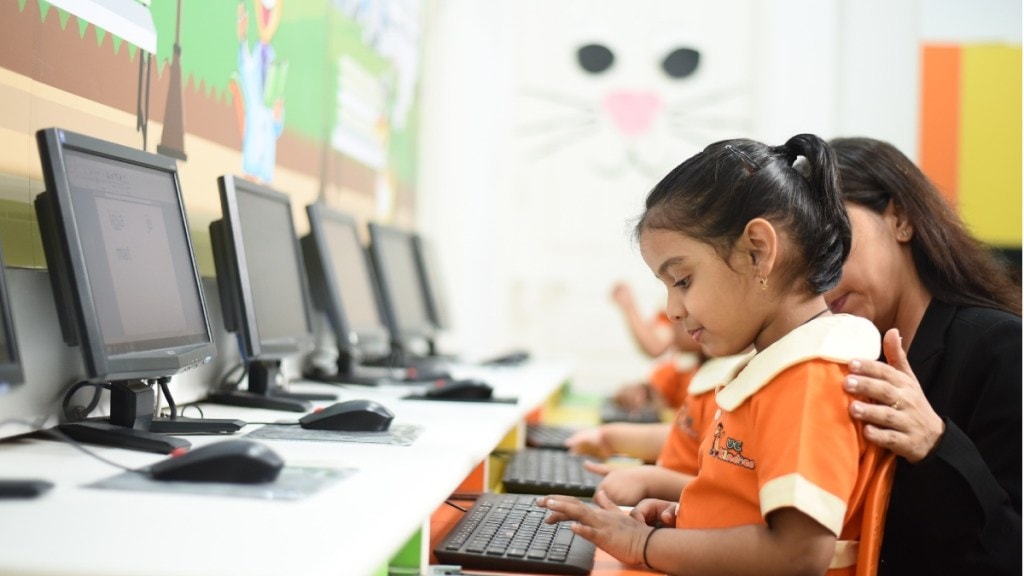As the year 2024 has almost signed off, the landscape of preschool education in India has undergone significant transformation, fueled by a shift in parental perspectives. What was once seen as an optional phase in a child’s life is now gaining recognition as the bedrock of their development. The numbers speak volumes: the Indian preschool market, valued at $4.2 billion in 2023, is projected to skyrocket to $10.2 billion by 2032, according to the Indian Pre-School/Childcare Market Report.
Parental mindsets: A shift across generations and geographies
Industry experts shared with the Financial Express that a growing number of parents are prioritising early childhood education, recognising its crucial role in shaping their children’s future. “More parents are enrolling their children in preschools as early as two or three, understanding the profound impact it has on their behavioral, social, and emotional development,” KVS Seshasai, CEO, Pre-K Division, Lighthouse Learning (EuroKids), said.
Interestingly, Seshasai asserts that this rising trend is not confined to metropolitan cities alone; parents from Tier 2 and Tier 3 cities are also embracing the importance of early education for their children. “As an industry, we must continue to advocate for the value of preschool education and strive to make it accessible to families from all walks of life, including those in smaller towns,” he added.
“The robust growth of India’s preschool sector showcases a remarkable shift in parental priorities for their children. Parents recognise early education as the foundation for lifelong learning, emphasising holistic development over rote learning. With increasing awareness about the importance of cognitive, emotional, and social skills during the formative years, preschools are becoming more than just daycare centers—they are hubs of innovation and nurturing,” Vikram Kesarwani, Director, The Learning Space, said.
Industry demands and NEP’s influence
While the sector flourishes, it seeks structural reforms from the government, particularly in formalising the industry by introducing mandatory registration and minimum standards. Experts believe that such steps would ensure safe, high-quality, and developmentally appropriate learning environments for young children across the country.
The industry views the National Education Policy (NEP) 2020 as a pivotal force in reshaping India’s education landscape. With its emphasis on foundational literacy and numeracy, the NEP is laying the groundwork for a robust education system, positioning India to become a global leader in knowledge. “Vocational education is also set to take center stage. It is becoming increasingly vital as it equips students with the skills necessary to thrive in today’s rapidly changing job market. By focusing on practical, hands-on learning, we can better prepare young minds for the opportunities ahead,” Manish Rastogi, Whole-Time Director, CEO, Zee Learn Private Limited, explained.
The digital, AI wave in preschooling
Rastogi also highlights the ongoing shift toward online and digital education, a trend accelerated by the pandemic and one that is here to stay. “What excites me most is the role artificial intelligence (AI) will play in this transformation. AI’s ability to personalize, engage and enhance learning has the potential to revolutionize the classroom experience for both students and teachers,” he added.
What lies ahead for 2025 and beyond
Jairam Balakrishnan, CEO of Globeducate India, shared his thoughts on the future of education in 2025, saying, “Today, the education sector is recognised as a vital asset, crucial in shaping future generations and driving societal progress. In 2025, we expect to see a greater focus on personalised learning and skill-based development. We anticipate a closer alignment of India’s curriculum with global standards. The sector’s growth will be fueled by areas like project-based learning, social-emotional learning, and soft skills development, which will all contribute to the industry’s growth in the coming year.”


